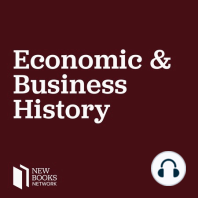67 min listen

Helen Louise Cowie, "Victims of Fashion: Animal Commodities in Victorian Britain" (Cambridge UP, 2021)
Helen Louise Cowie, "Victims of Fashion: Animal Commodities in Victorian Britain" (Cambridge UP, 2021)
ratings:
Length:
58 minutes
Released:
Dec 21, 2023
Format:
Podcast episode
Description
Animal products were used extensively in nineteenth-century Britain. A middle-class Victorian woman might wear a dress made of alpaca wool, drape herself in a sealskin jacket, brush her hair with a tortoiseshell comb, and sport feathers in her hat. She might entertain her friends by playing a piano with ivory keys or own a parrot or monkey as a living fashion accessory.
In Victims of Fashion: Animal Commodities in Victorian Britain (Cambridge University Press, 2021), Dr. Helen Cowie examines the role of these animal-based commodities in Britain in the long nineteenth century and traces their rise and fall in popularity in response to changing tastes, availability, and ethical concerns. Focusing on six popular animal products – feathers, sealskin, ivory, alpaca wool, perfumes, and exotic pets – she considers how animal commodities were sourced and processed, how they were marketed and how they were consumed. Dr. Cowie also assesses the ecological impact of nineteenth-century fashion.
This interview was conducted by Dr. Miranda Melcher whose forthcoming book focuses on post-conflict military integration, understanding treaty negotiation and implementation in civil war contexts, with qualitative analysis of the Angolan and Mozambican civil wars.
Learn more about your ad choices. Visit megaphone.fm/adchoices
In Victims of Fashion: Animal Commodities in Victorian Britain (Cambridge University Press, 2021), Dr. Helen Cowie examines the role of these animal-based commodities in Britain in the long nineteenth century and traces their rise and fall in popularity in response to changing tastes, availability, and ethical concerns. Focusing on six popular animal products – feathers, sealskin, ivory, alpaca wool, perfumes, and exotic pets – she considers how animal commodities were sourced and processed, how they were marketed and how they were consumed. Dr. Cowie also assesses the ecological impact of nineteenth-century fashion.
This interview was conducted by Dr. Miranda Melcher whose forthcoming book focuses on post-conflict military integration, understanding treaty negotiation and implementation in civil war contexts, with qualitative analysis of the Angolan and Mozambican civil wars.
Learn more about your ad choices. Visit megaphone.fm/adchoices
Released:
Dec 21, 2023
Format:
Podcast episode
Titles in the series (100)
Sam Gindin and Leo Panitch, “The Making of Global Capitalism: The Political Economy of American Empire” (Verso, 2013): Two Canadian socialist thinkers have published a new book on the successes and failures, the crises, contradictions and conflicts in present-day capitalism. In The Making of Global Capitalism: The Political Economy of American Empire (Verso, 2013), by New Books in Economic and Business History